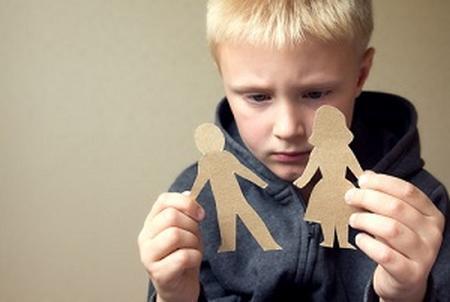How to Share Parental Decision-Making Responsibilities After Divorce
 One of the biggest challenges of being a parent is the responsibility to make important decisions that affect the lives and well-being of your children. Married parents at least have the benefit of being able to confide in and consult with a trusted partner when making such decisions, but for divorced or single parents, this is often not the case.
One of the biggest challenges of being a parent is the responsibility to make important decisions that affect the lives and well-being of your children. Married parents at least have the benefit of being able to confide in and consult with a trusted partner when making such decisions, but for divorced or single parents, this is often not the case.
Even co-parents who get along and communicate well must cope with the challenge of raising their children between two different households, and co-parents who are in conflict with each other tend to face even more significant obstacles. The way that you and your co-parent share decision-making responsibilities depends largely on your family’s unique situation, but an experienced attorney can help you work toward an effective arrangement.
What Kinds of Decisions Are Considered to Be Significant in Illinois?
Under Illinois law, parents have the discretion to make routine decisions regarding their children during their allocated parenting time. However, certain types of significant decisions are governed more specifically according to the terms of a parenting plan. These include decisions regarding:
- The children’s education
- The children’s health
- The children’s religion
- The children’s extracurricular activities
Often, divorced parents will continue to share responsibility for all of these decisions, and they may come up with an arrangement on their own that suits their children’s interests. In more contentious cases, the court will allocate parental decision-making responsibilities and may limit or restrict a parent’s authority in some or all areas even if both parents are allocated parenting time.
Considerations for Sharing Responsibilities
Sharing decision-making responsibility may be easier when you and your co-parent are on good terms, but even in cases where you do not get along, it may be important to find a way to work together for the good of your children. Some questions to consider when it comes to significant decision-making include:
- Will both parents share responsibility for all decisions? You may determine that it is best for both parents to have input in any important decisions, but in some cases, it may make sense to allocate primary decision-making authority to one parent in certain areas. For example, one parent may have been more involved in the child’s religious upbringing or extracurricular activities even before the divorce, so it could be best to continue this arrangement.
- How will you and your co-parent communicate and share information? If you and your co-parent get along, regular face-to-face communication may be the best way to deliberate on important decisions. If not, you should have clear expectations for communicating by phone or in writing. In either case, your parenting plan should address each of your access to the children’s school and medical records and other important information.
- How will you resolve disagreements? In cases in which you and your co-parent disagree, you will need a plan for arriving at a final decision. You may decide that one parent will have final authority over certain matters after consulting with the other, or that in case of disagreement you and your co-parent will work with a third-party mediator.
Contact a Lombard, IL Family Law Attorney
Making the best possible decisions for your children is crucial to their health, growth, and development. At Mevorah & Giglio Law Offices, we can help you reach an arrangement that allows you and your co-parent to effectively share parental responsibilities. For a free consultation, contact our DuPage County parental responsibility lawyers today at 630-932-9100.
Source:
https://www.ilga.gov/legislation/ilcs/documents/075000050K602.5.htm
 English,
English,
 Spanish,
Spanish,
 Polish,
Polish,
 Urdu
Urdu













 Make a Payment
Make a Payment



